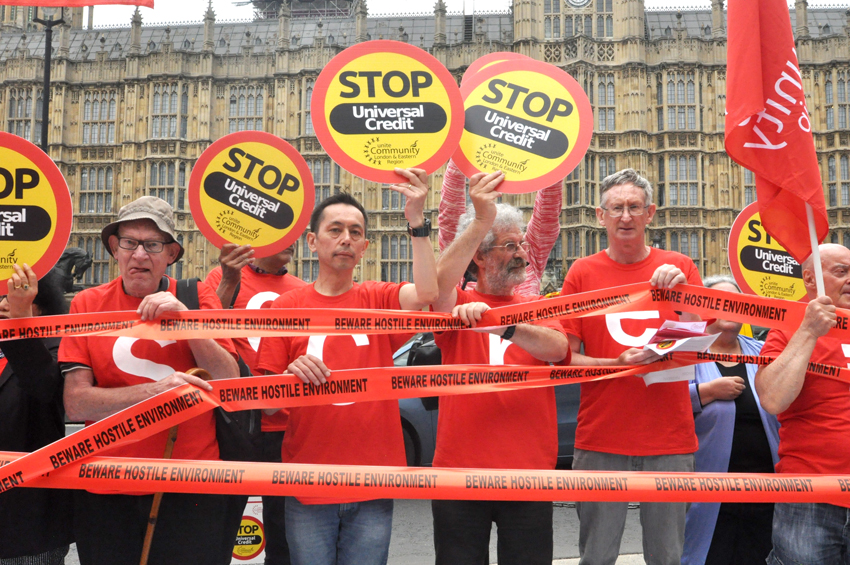UNIVERSAL CREDIT claimants have been thrown into destitution, poverty, homelessness and starvation as a direct result of a ‘flawed algorithm’ a damning new welfare benefit report concludes.
The report, by watchdog Human Rights Watch (HRW), has found that Universal Credit is causing hardship among people who lack digital skills or cannot afford reliable internet access.
A ‘flawed algorithm’ used by the UK government to calculate how much welfare benefit people should receive has failed thousands the report says.
It states that the Department for Work and Pensions’ (DWP) ‘rigid insistence’ on automating Universal Credit is threatening the rights of people most at risk of poverty in Britain.
The ‘predominantly digital’ benefit is also causing hardship among people who lack digital skills or cannot afford reliable internet access, as they are unable to apply for and manage their benefit online.
The report also accuses the government of breaching international human rights obligations by depriving people of their rights to social security and a decent standard of living, and failing to give those whose rights are violated an effective remedy.
It found that the means-testing algorithm at the heart of Universal Credit, which is supposed to adjust how much people are entitled to each month based on changes in their earnings, was ‘flawed,’ with the data used to measure these changes only reflecting the wages people receive within a calendar month, and ignoring how frequently people are actually paid.
This means that if people receive multiple pay cheques in one month – common among people in irregular or low-paid jobs – this can cause the algorithm to overestimate earnings and drastically shrink their payment.
In one case, a 31-year-old father of three who had his October 2019 benefit reduced by nearly £600 because of this, told researchers: ‘It’s a big hole I am in at the minute. I’ve worked all my life and I am resorting to using the food bank today because of benefits that I am receiving. It’s not really a benefit is it, if I’m having to use this service?’
It comes as the pandemic has led to a surge in UK residents claiming welfare support, with DWP estimates showing that a record 3.4 million people applied for Universal Credit during the first three months of the public health crisis.
In light of the new report, Amos Toh, senior artificial intelligence and human rights researcher at HRW, said: ‘The government has put a flawed algorithm in charge of deciding how much money to give people to pay rent and feed their families.
‘Its bid to automate the benefits system – no matter the human cost – is pushing people to the brink of poverty.’
Responding to the report, Gillian Guy, chief executive of Citizens Advice, said that with the potential for a ‘fresh avalanche’ of job losses this winter, it is ‘critical’ that the government further strengthens the welfare safety net.
‘That means turning advance payments into grants to help people weather the five-week wait and ensuring the system can respond flexibly to people’s circumstances,’ she added.
